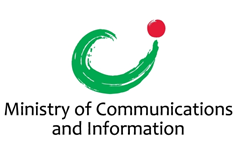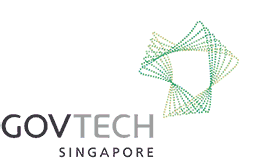
Brunei, officially the Nation of Brunei, the Abode of Peace, is a country located on the north coast of the island of Borneo in Southeast Asia. Apart from its coastline with the South China Sea, the country is completely surrounded by the insular Malaysian state of Sarawak. It is separated into two parts by the Sarawak district of Limbang. Brunei is the only sovereign state completely on the island of Borneo; the remainder of the island's territory is divided between the nations of Malaysia and Indonesia. Brunei's population was 428,963 in 2018. The government is an absolute monarchy under the Sultan, which implements a combination of English common law and sharia law, as well as direct general Islamic practices.
The economy of Brunei, a small and wealthy country, is a mixture of foreign and domestic entrepreneurship, government regulation and welfare measures, and village traditions. It is almost entirely supported by exports of crude oil and natural gas, with revenues from the petroleum sector accounting for over half of GDP. Per capita GDP is high, and substantial income from overseas investment supplements income from domestic production. The government provides for all medical services and subsidizes food and housing. The government has shown progress in its basic policy of diversifying the economy away from oil and gas. Brunei's leaders are concerned that steadily increased integration in the world economy will undermine internal social cohesion although it has taken steps to become a more prominent player by serving as chairman for the 2000 APEC forum. Growth in 1999 was estimated at 2.5% due to higher oil prices in the second half.

Brunei joined ASEAN on 7 January 1984, one week after resuming full independence, and gives its ASEAN membership the highest priority in its foreign relations. Brunei joined the United Nations in September 1984. It is also a member of the Organisation of Islamic Cooperation (OIC), the Asia-Pacific Economic Cooperation (APEC) forum and the Commonwealth of Nations. Brunei hosted the APEC Economic Leaders' Meeting in November 2000. In 2005 it attended the inaugural East Asia Summit.

Bandar Seri Begawan is the capital and largest city of Brunei. It is officially governed as a municipality. Bandar Seri Begawan has an estimated population of 100,700, and including the whole Brunei-Muara District, the metro area has an estimated population of 279,924, over half the population of the country.

The Brunei dollar, has been the currency of the Sultanate of Brunei since 1967. It is normally abbreviated with the dollar sign $, or alternatively B$ to distinguish it from other dollar-denominated currencies. It is divided into 100 sen (Malay) or cents (English). The Brunei dollar is issued by the Autoriti Monetari Brunei Darussalam.

The Singapore dollar is the official currency of Singapore. It is divided into 100 cents. It is normally abbreviated with the dollar sign $, or S$ to distinguish it from other dollar-denominated currencies. The Monetary Authority of Singapore issues the banknotes and coins of the Singapore dollar.
The Infocomm Media Development Authority (IMDA) is a statutory board of the Singapore government, under the Ministry of Communications and Information (MCI).
CEPAS, the Specification for Contactless e-Purse Application, is a Singaporean specification for an electronic money smart card. CEPAS has been deployed island-wide, replacing the previous original EZ-Link card effective 1 October 2009.

The Ministry of Communications and Information is a ministry of the Government of Singapore. It is in charge of information and communications technology, the media and design sectors, public libraries, as well as the Government's information and public communication policies.

Wireless@SG is a wireless broadband programme developed by the Infocomm Development Authority (IDA) of Singapore as part of its Next Generation National Infocomm Infrastructure initiative, being part of the nation's 10-year masterplan called Intelligent Nation 2015 (iN2015).
Intelligent Nation 2015 (iN2015) is a 10-year masterplan by the Government of Singapore to improve Singapore's infocomm infrastructure over the next decade. Led by the Infocomm Development Authority of Singapore (IDA), iN2015 involves several organisations.
Established on June 16, 2007, the SME Infocomm Resource Centre, is a not-for-profit organisation that seeks to help Small and Medium Enterprises (SMEs) in Singapore to advance their use of Info-Communications Technology (ICT).

The politics of Brunei take place in a framework of an absolute monarchy, where by the Sultan of Brunei is both head of state and head of government. Executive power is exercised by the government. Brunei has a legislative council with 36 appointed members, that only has consultative tasks. Under Brunei's 1959 constitution, His Majesty Paduka Seri Baginda Sultan Haji Hassanal Bolkiah Mu'izzaddin Waddaulah, is the head of state with full executive authority, including emergency powers since 1962. The Sultan's role is enshrined in the national philosophy known as "Melayu Islam Beraja" (MIB), or Malay Islamic Monarchy. The country has been under hypothetical martial law since a rebellion occurred in the early 1960s and was put down by British troops from Singapore.

Brunei–India relations refers to bilateral foreign relations between Brunei and India. Brunei has a high commission in New Delhi, and India has a high commission in Bandar Seri Begawan.

The Monetary Authority of Brunei Darussalam is the central bank of Brunei. It was established under the Autoriti Monetari Brunei Darussalam Order, 2010, and began operations on January 1, 2011. It succeeded the Brunei Currency and Monetary Board.
Since June 2011, Singapore has had a law governing net neutrality, which promised all internet users would be treated equally on the internet. It prevents them from being discriminated against or charged differently based on the user, content, site, platform, application, type of attached equipment, or mode of communication.

Hassanal Bolkiah is the 29th and current Sultan and Yang di-Pertuan of Brunei, as well as the Prime Minister of Brunei, making him one of the last absolute monarchs in the world. The eldest son of Sultan Omar Ali Saifuddien III and Raja Isteri (Queen) Pengiran Anak Damit, he succeeded to the throne as the Sultan of Brunei, following the abdication of his father on 5 October 1967.
ViewQwest is an Internet service provider (ISP) that provides fiber broadband services to both businesses and residential users. Established in 2001, ViewQwest serviced businesses with Internet connectivity services, but in January 2012 began its foray into the residential fiber broadband market following Infocomm Development Authority of Singapore's launch of the Next Generation Nationwide Broadband Network (NGNBN) in 2010.
Awangku Nurrul Aleshahnezan bin Pengiran Metali is a Bruneian footballer who plays as a midfielder or defender. He appeared twice for the Brunei national football team in 2008.

The Government Technology Agency (GovTech) is a statutory board of the Singapore government, under the Prime Minister's Office. It was restructured from the former entity Infocomm Development Authority of Singapore (IDA) in 2016, and officially legislated in Parliament on 18 August that year.











